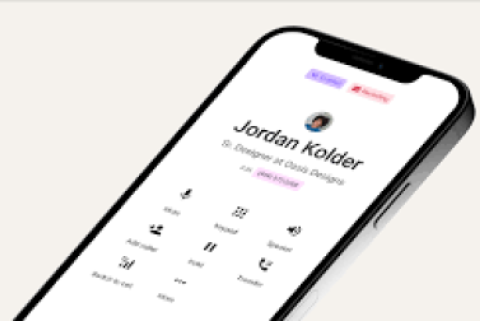In the bustling metropolis of Los Angeles, the 213 area code, particularly in the downtown area, serves as a focal point for businesses seeking to connect with local residents. However, the landscape of telecommunication within Area Code 213 brings forth challenges related to robo calls, spam calls, and the need for adherence to the Telephone Consumer Protection Act (TCPA).
Navigating the labyrinthine streets of Los Angeles within the 213 area code, businesses face a unique set of challenges and opportunities. Downtown Los Angeles, the beating heart of the 213 area code, is a melting pot of cultures, businesses, and diverse communities. As businesses seek to engage with users in this bustling urban landscape, they must be attuned not only to the dynamism of the local scene but also to the regulatory nuances surrounding robo calls, spam calls, and the ever-important Telephone Consumer Protection Act (TCPA) compliance.
The 213 area code is not merely a set of digits; it's a gateway to the vibrant culture and economic activity that defines Downtown Los Angeles. For businesses aiming to establish a presence in this area, understanding the local pulse is crucial. Residents of this dynamic district are discerning consumers who value personalized and respectful communication. In an environment where urban living coexists with the demand for individualized attention, businesses must tailor their outreach strategies to align with the expectations of the community.
The prevalence of robo calls and spam calls poses a challenge for businesses looking to connect with users in the 213 area code. Consumers in downtown Los Angeles, like in many urban centers, are particularly wary of unsolicited communications that disrupt their daily lives. Therefore, businesses must adopt communication strategies that not only comply with TCPA regulations but also prioritize user experience and respect the privacy of residents.
TCPA compliance is not merely a legal requirement; it is a cornerstone of ethical communication practices. Businesses that operate within the 213 area code must be proactive in obtaining clear and explicit consent before engaging with users. This not only ensures adherence to TCPA guidelines but also demonstrates a commitment to building trust with the community. Respecting the boundaries and preferences of users is fundamental to fostering positive relationships in this vibrant urban landscape.
In the era of advanced communication technologies, businesses can leverage innovative solutions to enhance their outreach strategies. Interactive voice responses, artificial intelligence-driven conversations, and personalized messaging contribute to a more tailored and user-centric communication approach. These technologies not only facilitate TCPA compliance but also elevate the overall user experience, aligning businesses with the expectations of residents in the 213 area code.
The downtown core of Los Angeles is a microcosm of the larger telecommunication landscape, where businesses must navigate not only legal considerations but also the evolving preferences of users. Consumer attitudes towards telemarketing are shaped by their interactions with businesses, and those that prioritize responsible and ethical communication practices stand to gain the trust and loyalty of the community.
The 213 area code encompasses the vibrant heart of Los Angeles, with Downtown serving as a hub of commerce, culture, and diverse communities. For businesses navigating this area, understanding the implications of robo calls and spam calls is paramount. These unwanted communications not only disrupt the lives of residents but also pose legal risks, emphasizing the importance of TCPA compliance.
The TCPA, a federal law enacted in 1991, regulates telemarketing activities and aims to protect consumers from unsolicited and intrusive calls. In the context of Area Code 213, businesses must navigate the delicate balance between engaging with the local community and avoiding practices that may be perceived as robo calls or spam calls. TCPA compliance becomes a strategic imperative to build trust and maintain positive relationships with consumers in this dynamic urban landscape.
As businesses seek to connect with users in the 213 area code, personalized and targeted communication strategies are key. Implementing advanced technologies that facilitate responsible outreach, such as interactive voice responses and AI-driven conversations, can enhance the overall user experience while minimizing the risk of being associated with robo calls or spam calls.
The challenges associated with telecommunication within Area Code 213 extend beyond legal considerations to encompass the evolving preferences of users. Consumer attitudes towards telemarketing are shaped by their experiences, and businesses that prioritize ethical communication practices not only ensure TCPA compliance but also position themselves favorably in the eyes of the community.
The downtown core of Los Angeles, represented by the 213 area code, demands a nuanced approach to telecommunication. Businesses that recognize the unique characteristics of this area and tailor their communication strategies accordingly are better equipped to navigate the complexities of robo calls, spam calls, and TCPA compliance. Building a positive rapport with users in Area Code 213 involves not only meeting legal requirements but also demonstrating a genuine commitment to respectful and user-centric communication.
Conclusion
In conclusion, the intersection of Area Code 213, Los Angeles, and the challenges posed by robo calls, spam calls, and TCPA compliance creates a dynamic landscape for businesses. By adopting responsible communication practices, leveraging advanced technologies, and prioritizing user preferences, businesses can forge meaningful connections in this vibrant urban center. As the telecommunication landscape continues to evolve, those that navigate the intricacies of Area Code 213 with sensitivity and compliance will stand out as ethical and trustworthy communicators in the eyes of the community.



